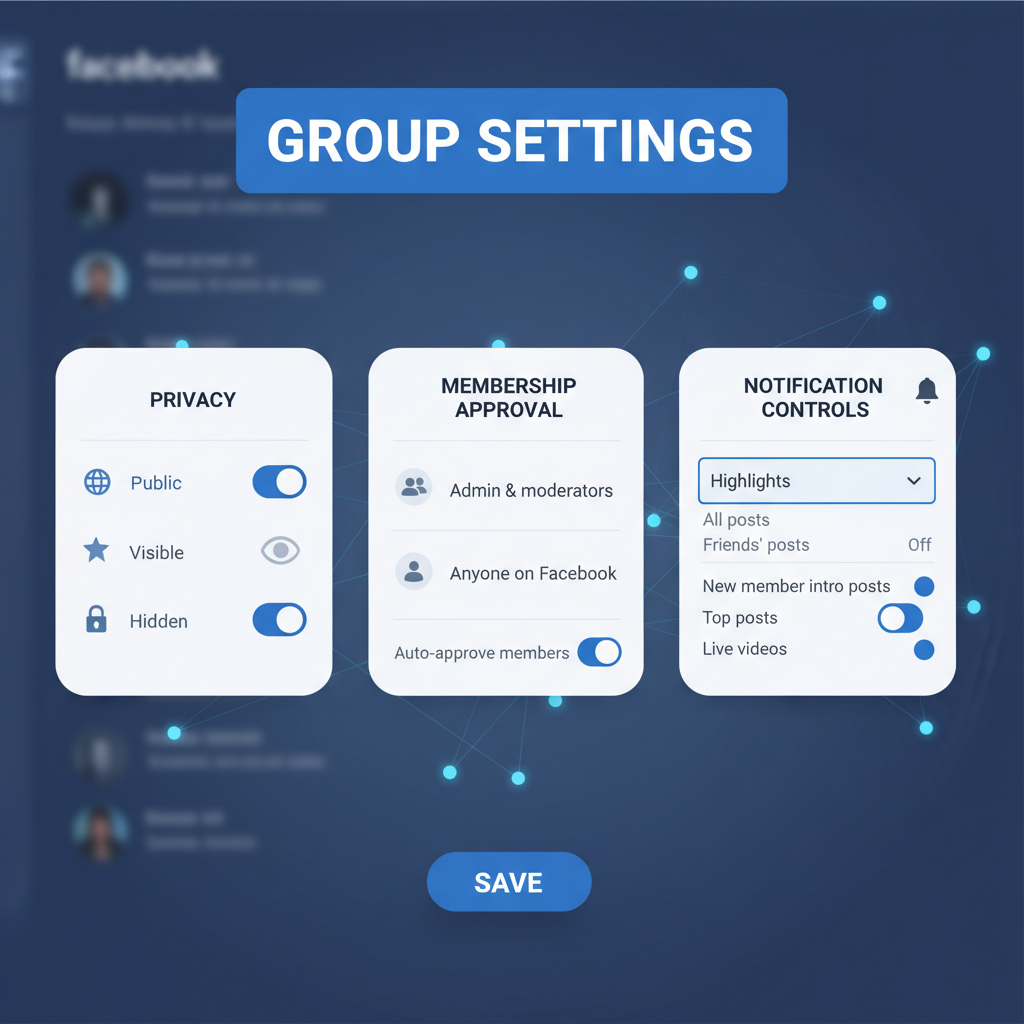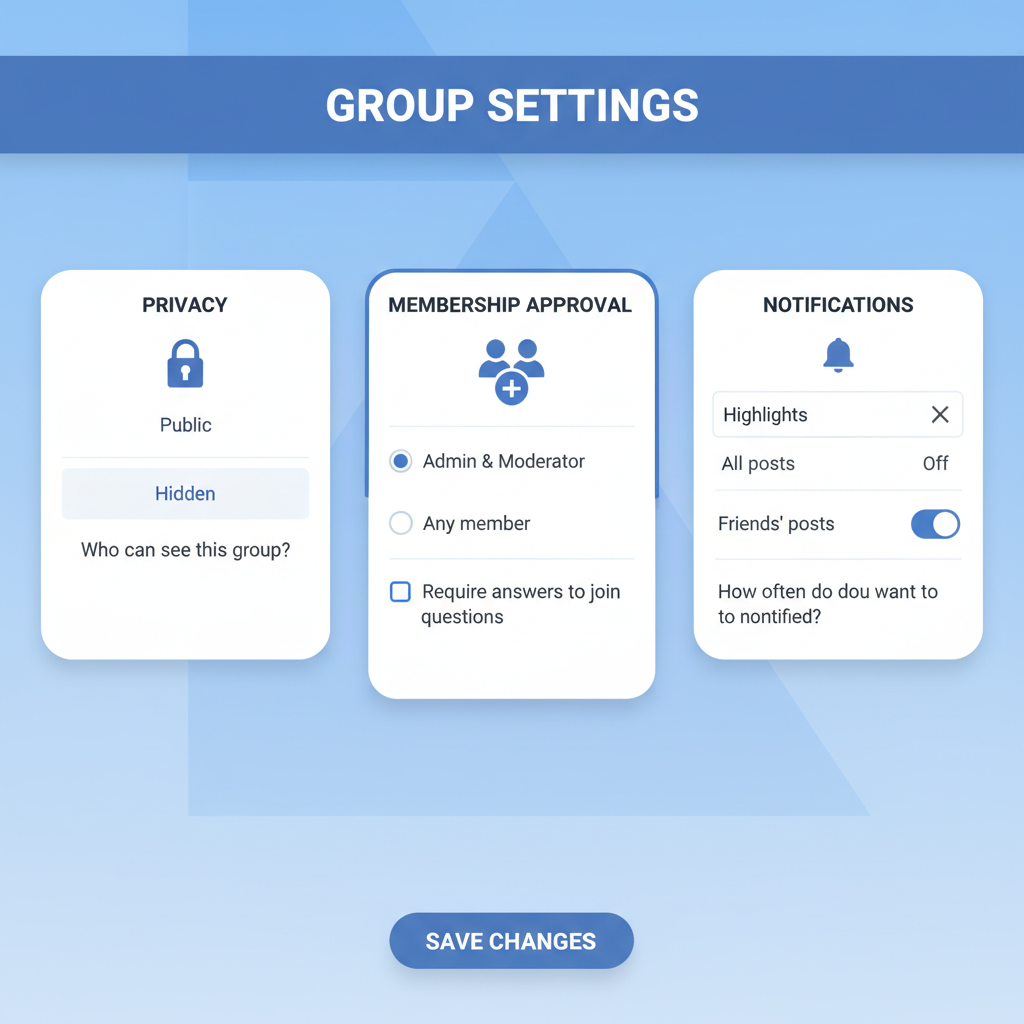Tips to Succeed as a Facebook Group Manager
Learn effective strategies for Facebook group management, from setting rules and engaging members to using insights for growth and community success.

Tips to Succeed as a Facebook Group Manager
Managing a Facebook group can be both rewarding and challenging. As a group manager for Facebook, you hold the key to building a thriving community, fostering engagement, and ensuring members feel valued. Whether your group is a professional network, hobby club, or social support community, understanding and applying proven best practices will help you maintain a healthy online ecosystem and achieve long-term success. This guide covers the essential strategies for effective Facebook group management, including clear purpose setting, rule enforcement, engagement tactics, and growth analysis.

---
Understanding the Role and Responsibilities of a Facebook Group Manager
The role goes beyond just approving member requests or deleting spam. A group manager for Facebook must:
- Maintain order, quality, and relevance in discussions.
- Create a safe environment where members can share ideas freely.
- Moderate content to prevent misinformation or harassment.
- Act as a leader, motivator, and community builder.
Balancing administrative duties with creative content creation and relationship-building is vital to success.
---
Identify the Purpose and Niche Before Launching
Before you start inviting members, define why your group exists. A clear niche will help you attract the right audience and keep content targeted.
Niche Identification Questions:
- Who is my ideal member?
- What problems or desires will this group address?
- Is there existing competition, and how is my group different?

Example: If your group focuses on “freelance graphic design,” your niche ensures relevant conversations, resources, and networking opportunities that keep members engaged and satisfied.
---
Set Clear Group Rules and Guidelines to Maintain Quality
Without clear rules, you risk chaos and low-quality content. Rules should outline expectations for behavior, content posting, and promotional activities.
Tips for drafting rules:
- Keep them concise but detailed enough to answer common questions.
- Pin them in an easily accessible place.
- Enforce them consistently for fairness.
---
Optimize Group Settings for Privacy, Membership, and Notifications
Facebook offers flexible settings to tailor privacy levels and member access. The right configuration promotes trust and safety.
| Setting | Recommendation |
|---|---|
| Privacy Level | Private, if discussing sensitive topics |
| Membership Approval | Admin/moderator approval to screen applicants |
| Post Approval | Enable for new members to prevent spam |
| Notifications | Encourage members to select “All Posts” |
---
Craft an Engaging Welcome Post and Pinned Resources
The welcome post is every new member’s first touchpoint. It should be warm, informative, and link to essential resources.
Key elements for a welcome post:
- A friendly greeting from the admin team.
- Clear instructions on how to participate.
- Links to group rules and starter guides.
Pin FAQs, downloadable resources, and a guide for using Facebook group features effectively to help users navigate with ease.
---
Post Consistent, Value-Driven Content
A successful group manager for Facebook maintains consistency. Posting according to a schedule builds trust and encourages members to return regularly.
Content Ideas:
- Polls to spark opinions.
- Short tip videos.
- Discussion threads on current trends.
- Challenges or mini-projects.
A mix of media formats keeps engagement high and avoids content fatigue.
---
Use Facebook Insights to Track Engagement
Facebook Insights give group managers analytics to measure activity and understand their audience.
Best practices for using Insights:
- Track peaks in engagement to schedule posts effectively.
- Monitor which post types perform best.
- Identify inactive members and develop re-engagement strategies.
---
Encourage Member Participation Through Prompts and Theme Days
Recurring activities build a sense of routine for members. Introduce weekly or monthly themes such as:
- Motivation Monday – Share inspirational quotes or successes.
- Poll Wednesday – Quick opinion polls.
- Feedback Friday – Members give feedback on each other’s ideas or work.
These themes provide opportunities for interaction and can spark ongoing conversations.
---
Manage Conflicts and Enforce Rules Diplomatically
Conflicts are inevitable in any community. Your approach as a group manager for Facebook will shape culture and trust.
Conflict management tips:
- Address issues privately before making public statements.
- Remain neutral, focusing on solutions.
- Remove disruptive members respectfully and explain the decision.
---
Collaborate with Admins and Moderators for Balanced Workload
Large or active groups benefit from team management. Assign distinct roles to prevent burnout and maintain efficiency.
Potential role division:
- Content scheduling.
- Member approvals.
- Monitoring for spam.
- Event planning and promotion.

---
Leverage Facebook Events and Live Streams to Build Community
Events and live video sessions create real-time interaction in your group. Examples include:
- Q&A sessions.
- Virtual workshops.
- Member networking meetups.
Such formats add personal connection and unique value beyond static posts.
---
Cross-Promote the Group in Related Platforms Without Spamming
To reach new audiences:
- Mention your group in relevant forums or social channels.
- Collaborate with influencers in your niche.
- Include the group link in your blog sidebar and email newsletter.
Avoid spamming unrelated communities to maintain credibility.
---
Evaluate Growth Regularly and Adjust Tactics
Community management is an ongoing process. Schedule quarterly reviews to monitor and adapt strategies.
| Metric | Action |
|---|---|
| Member growth rate | Adjust promotion efforts or content frequency |
| Engagement score | Experiment with new post formats |
| Rule violations | Revise guidelines or improve onboarding |
Continuous adjustments keep your group relevant and appealing.
---
Summary
Being an effective group manager for Facebook is both an art and science. Start with a clearly defined niche, set and enforce fair rules, and nurture the community with consistent, meaningful content. Use Facebook’s insights to refine engagement strategies, host interactive events to build relationships, and periodically measure growth to stay on track. By committing to quality, respect, and active leadership, you can create a dynamic group that members value and recommend.
Ready to elevate your Facebook group management? Apply these proven steps today and build a community that thrives in the long term.



